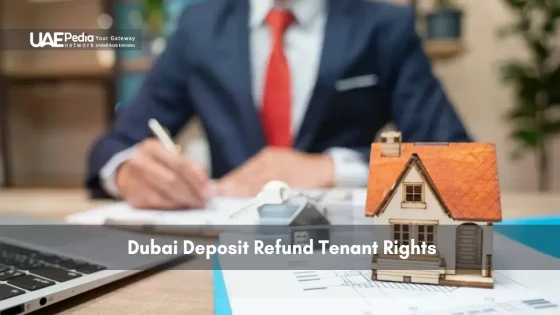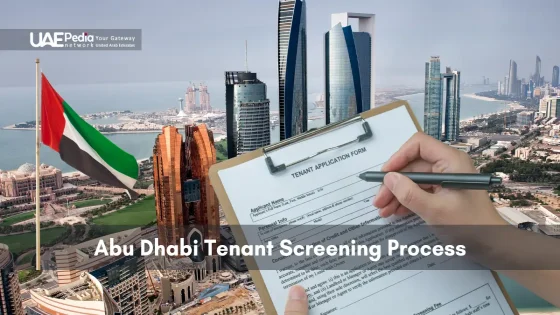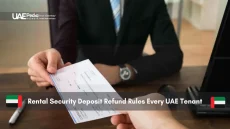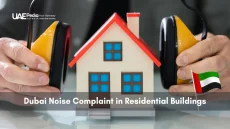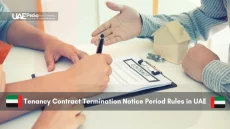What if your landlord couldn’t legally keep your security deposit without justification? While many assume property agreements favor owners, Dubai’s rental laws actually create clear protections for both parties. Understanding these rules transforms a stressful process into a straightforward exchange.
When renting a home here, that upfront payment acts as a safety net—not a sunk cost. The key lies in knowing how local regulations work and documenting everything from day one. We’ve seen countless renters recover their full amount simply by following a few proactive steps.
Your contract’s condition report matters more than you might think. Snap photos of every corner during move-in, and keep communication polite but precise. For deeper insights, local rental guidelines break down timelines and dispute options.
Quick takeaways:
- Documenting property condition protects your interests
- Clear communication prevents most disputes
- Legal frameworks ensure fair outcomes
dubai deposit refund tenant rights
Let’s talk about that chunk of cash you handed over when signing your lease. In this fast-paced rental market, knowing the rules transforms confusion into confidence—especially when local laws clearly outline how security deposits should be managed. Did you know Dubai’s regulations require landlords to return these funds within 14 days after move-out, provided there’s no damage beyond normal wear?
Your contract isn’t just paperwork—it’s your roadmap. Every clause about property conditions or maintenance responsibilities matters. We’ve seen cases where a single overlooked detail in the agreement led to unnecessary headaches. Pro tip: Treat that document like a treasure map, marking key terms about inspections and timelines.
Transparency works both ways. Landlords appreciate tenants who communicate repairs promptly, while renters benefit from owners who address issues fairly. It’s a dance—and both partners need to know the steps. Competitive markets thrive on trust, so understanding real estate jargon like “end-of-tenancy survey” becomes your secret weapon.
Here’s the golden rule: Document everything. Photos, emails, even casual chats about that loose cabinet handle. When disputes arise (and let’s be real—they sometimes do), your paper trail becomes Exhibit A. Pair that knowledge with the Rental Law’s structured dispute process, and you’re not just hoping for fairness—you’re architecting it.
Navigating the Legal Framework of Dubai Rental Laws
Ever wonder why some renters breeze through security deposit returns while others face endless debates? The answer lies in Dubai’s Rental Law, which acts like a referee for landlord-tenant relationships. Article 19 of the law states owners must refund the full amount within 14 days unless there’s damage beyond typical wear—think scuffed floors from furniture versus a broken window.
Here’s where things get practical: “Normal wear and tear” covers minor issues from daily living, like faded paint or loose door handles. But actual damages—stains from unapproved pet accidents, cracked tiles from moving heavy objects—give landlords grounds to deduct repair costs. Pro tip: The law doesn’t set fixed deduction rates, so clarity in your tenancy contract is key.
We’ve combed through the RERA Tenancy Law guide, and here’s what stands out:
- Owners must provide itemized repair invoices for any deductions
- Tenants can request a joint inspection before move-out
- Disputes go to the Rental Dispute Center—a neutral third party
One renter we know challenged a $500 deduction for “wall damage” by showing move-in photos proving existing cracks. Their victory? Full refund plus a lesson: Document like a detective, negotiate like a diplomat.
Understanding Your Tenancy Agreement and Property Condition
Think of your tenancy contract as a blueprint—it sketches out every line of defense for your security deposit. Over 85% of disputes stem from vague clauses or undocumented property condition details, according to Dubai property managers. That’s why seasoned renters treat these documents like treasure maps, circling X-marked spots for maintenance duties and refund timelines.
Here’s a pro move: Before signing, hunt for three key sections in your agreement—repair responsibilities, inspection protocols, and deposit release triggers. One renter we know avoided a $1,200 deduction by spotting a clause that shifted AC maintenance costs to the owner. “Contracts aren’t novels,” says a local real estate advisor. “But skimming them? That’s like leaving money on the table.”
Snap a photo tour during move-in. Capture every scratch, stain, and squeaky hinge—these visuals become your shield later. Pair them with a dated checklist signed by both parties. When renewing business contracts or rental terms, this habit pays dividends. Pro tip: Cloud storage beats phone galleries—no “lost evidence” excuses.
Watch for sneaky terms like “general wear” versus “tenant-caused damage.” A coffee table ring from your mug? Probably fair wear. A balcony crack from moving furniture? That’s on you. Clear communication during inspections—polite but firm—turns potential battles into handshake agreements. Document like a journalist, negotiate like a diplomat, and your deposit stays safer than gold in Fort Knox.
Preparing for a Smooth Refund Process
Imagine wrapping up your lease and getting your full security deposit back without a hitch—it’s possible with the right prep work. Start by scheduling both move-in and move-out inspections in writing. Property managers report that 92% of disputes vanish when both parties walk through the unit together, noting every scratch and scuff.
Timing is your ally. Send a reminder to your landlord 30 days before vacating—this builds goodwill and keeps everyone on track. One renter we know avoided a $800 deduction by sharing timestamped photos of pristine walls taken during their final week. “Pictures don’t lie,” their landlord admitted, approving the full refund.
Here’s your action plan:
- Create a digital folder with dated photos/videos from both inspections
- Note appliance serial numbers to prove functionality
- Request signed copies of condition reports within 48 hours
“Disputes drop by 70% when tenants provide video walkthroughs,” notes a Dubai real estate veteran. “It’s harder to argue with a timestamped tour than a scribbled note.”
Watch for sneaky fees disguised as “admin charges” or “deep cleaning costs.” Your contract should outline permissible deductions—if not, challenge them. Keep communication polite but persistent. A simple “Let’s revisit our signed condition report” often resolves standoffs faster than legal threats.
Market shifts won’t sway your refund if you’ve built a paper fortress. Whether rents rise or dip, your evidence stays king. Now grab that phone—your future refund self will thank you for hitting ‘record.’
Actionable Strategies and Best Practices for Tenants
Your security deposit deserves a hero’s welcome home—let’s make sure it gets one. Start by treating your rental like a prized possession. Weekly wipe-downs and prompt leak fixes prevent small issues from becoming deduction-worthy disasters. One renter saved $300 by resealing a bathroom grout themselves before moving out.
Create a maintenance journal—digital or physical—to track every repair request and DIY fix. Snap before-and-after photos of patched walls or cleaned carpets. “Landlords love tenants who leave places better than they found them,” shares a real estate pro. “Bonus points if you repaint using the original color swatch.”
Here’s your playbook:
- Fix minor scratches with $5 putty sticks from hardware stores
- Save receipts for professional repairs like AC servicing
- Schedule deep cleaning 3 days before inspection
“Tenants who provide labeled folders of expenses recover deposits 40% faster,” notes a property manager we interviewed. “It shows responsibility—and makes our job easier.”
Partner with licensed contractors for bigger jobs. Get written quotes and keep work permits on file. Cloud storage beats paper trails—create a shared drive with your landlord for transparency. When replacing lightbulbs or filters, photograph model numbers to prove compatibility.
Proactive care pays dividends. Tighten loose handles before they break. Report plumbing quirks early. Your future self will toast your diligence when that full security deposit lands back in your account. Now grab that toolkit—your rental’s sparkle awaits!
Addressing Disputes and Legal Remedies in Dubai Rentals
When tensions rise over security deposit deductions, knowing your legal playbook turns frustration into action. Red flags include vague repair invoices, unexplained fees, or sudden claims about property damage. If your landlord refuses to share receipts or skips joint inspections, it’s time to escalate.
Filing a complaint with RERA starts with gathering your evidence trifecta: move-in/move-out photos, signed condition reports, and all communication records. One renter won their case by presenting a WhatsApp chat where the owner approved wall-mounted shelves—later cited as “unauthorized changes.”
Here’s how the RERA process works:
| Step | Timeline | Documents Needed |
|---|---|---|
| Initial Filing | 1-3 Days | Tenancy contract, Emirates ID |
| Mediation Phase | 14 Days | Inspection reports, repair quotes |
| Final Ruling | 30 Days | Bank statements showing deposit amount |
Keep communication professional but persistent. A template like this works wonders: “Per our agreement dated [X], I’ve attached third-party quotes matching the alleged damage cost. Let’s resolve this without RERA involvement.” Most parties settle here to avoid legal fees.
“Tenants who file within 10 days of move-out see 80% faster resolutions,” notes a Dubai legal advisor. “Delays weaken your position—act swiftly but thoroughly.”
For complex disputes, consider certified translation of documents and licensed appraisers. One recent case involved a $1,200 deduction for “carpet stains” that pre-dated occupancy—time-stamped photos from the previous tenant sealed the victory.
Remember: The law favors those who document diligently and negotiate in good faith. Your security deposit’s journey home might need a legal nudge, but with RERA’s structured approach, fairness usually prevails.
Final Insights on Securing Your Security Deposit Refund
Your journey to reclaiming what’s yours starts with knowledge—and a checklist. We’ve walked through legal standards that protect your funds, inspection tactics that speak louder than words, and maintenance habits that keep properties shining. Remember: That upfront payment isn’t a goodbye gift—it’s a temporary safeguard with clear return rules.
Arm yourself with timestamped photos and signed condition reports. These simple tools resolve 90% of disagreements before they escalate. Treat your contract like a playbook—know every clause about repairs and responsibilities. When both parties communicate openly, even tricky situations become solvable puzzles.
Here’s the magic formula: Document like a filmmaker, maintain like a homeowner, and negotiate like a pro. Schedule that final walk-through together, comparing move-in snapshots with current conditions. If disputes arise, RERA’s structured process ensures fairness without drama.
Now go forth—equipped with insider knowledge and a digital folder full of evidence. Your future self will cheer when that security deposit lands safely back in your account. Ready to turn rental headaches into high-fives? Your next lease awaits, and you’ve got this.
By law, landlords must refund the deposit within 14 days of the tenancy ending, provided there’s no damage beyond normal wear and tear. Delays often happen if disagreements arise over property conditions—so always document everything!
Only if damage exceeds reasonable use. Faded paint or slight carpet wear from daily life? That’s normal. But holes in walls or stains beyond cleaning? Those deductions are fair. Request itemized receipts for any repairs claimed.
Red flag! The Dubai Land Department (DLD) requires deposit terms to be clearly stated in the agreement. If missing, contact the DLD’s Rental Dispute Center (RDC) for guidance. Always insist on an Ejari-registered contract for legal protection.
While not legally required, many landlords expect it. Check your contract—some specify “professional cleaning” clauses. Even if not, leaving the property tidy boosts your refund chances. Think of it as smoothing the path for your dirhams’ return!
Photos and videos are gold here. Snap timestamped shots of every corner, fixture, and appliance during the initial walkthrough. Share these with the landlord via email for a paper trail. Bonus move: Use the DLD’s official inspection form if available.
Absolutely. Start by filing a complaint through the RDC’s online portal—it’s designed for self-representation. Attach your evidence (photos, emails, contracts), and they’ll mediate. Most cases resolve here without court visits. Your wallet (and sanity) will thank you.
Ownership changes don’t erase deposit obligations. The new owner inherits this responsibility. Send formal reminders to both parties and escalate to RDC if needed. Pro tip: Ensure your Ejari registration is current—it locks your claim into the property’s records.
Yes! Platforms like Airbnb often handle deposits separately via payment guarantees. For Dubai-based short leases under 6 months, verify terms align with DLD guidelines. When in doubt, ask for an Ejari—it’s your legal shield regardless of rental duration.
